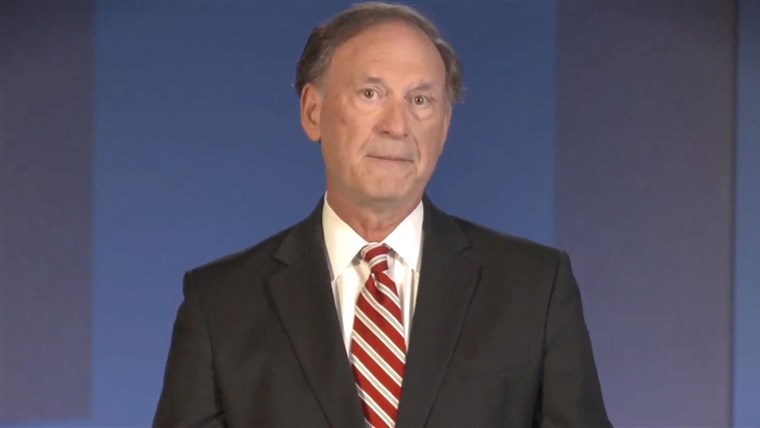Trump’s Supreme Court allows Trump’s other crank judges to run free

The reactionary hacks Republicans have nominated to lower federal courts have been overrunning Biden administration policy with no serious legal basis. One obvious reason they’re doing this is that they know the Court that is theoretically in charge of enforcing its own precedents isn’t going to do anything about it:
Of course, if the Supreme Court wanted lower-court judges to stop ignoring precedents that permit President Biden to govern, it could intervene to stop them from doing so. Instead, it has rewarded many of the most aggressive conservative innovators within the judiciary.
Recall Judge Kacsmaryk’s order requiring the Biden administration to reinstate Trump’s Remain in Mexico policy. There are many flaws in that order, but the most significant is that it runs roughshod over many decades of Supreme Court opinions warning against “the danger of unwarranted judicial interference in the conduct of foreign policy.”
When foreign nations negotiate with the United States, they need to know that America’s bargaining position won’t change abruptly because just one of the 1,392 men and women currently sitting as federal judges decides to take issue with that position. And when American diplomats make a promise on behalf of their country, they need to be able to keep that promise.
And yet, in siding with Kacsmaryk over Biden, the Supreme Court effectively abandoned its longstanding practice of deference to the executive on questions of foreign relations. That decision to abandon one of the fundamentals of US separation of powers will only embolden other judges who are trying to decide whether they can get away with ignoring the Court’s precedents.
If anything, the justices are sending loud signals that they want lower court judges to innovate in ways that shift power from the executive to the judiciary. In a few months, the Court plans to hear the West Virginia case, which asks it to revive a long-defunct doctrine known as “nondelegation.” The idea behind this dead-but-dreaming doctrine is that the Constitution places strict limits on Congress’s power to delegate power to agencies. In practice, nondelegation could allow the judiciary to veto any regulation promulgated by any federal agency.
Given these signals from the Supreme Court, some lower court judges are behaving as though the Court has already fully embraced nondelegation. Judge Engelhardt named nondelegation as one of the myriad reasons why he objects to the workplace vaccination rules (that case was transferred to the Sixth Circuit, which dissolved Engelhardt’s order. The case is now pending before the Supreme Court). One judge relied on nondelegation in an opinion blocking federal rules intended to prevent the spread of Covid-19 on cruise ships (that opinion is still in effect, after an appeals court decided not to block it). A panel of two Trump judges and one Reagan judge cited nondelegation as a reason to strike down an eviction moratorium (that the Supreme Court eventually rejected for other reasons).
As Milhiser goes on to point out, the Biden administration is showing little resistance, even in cases (like the order to restore the Remain in Mexico policy) where the courts have no real ability to enforce their orders. The Cult of the Court remains powerful no matter how lawless the federal courts get.
